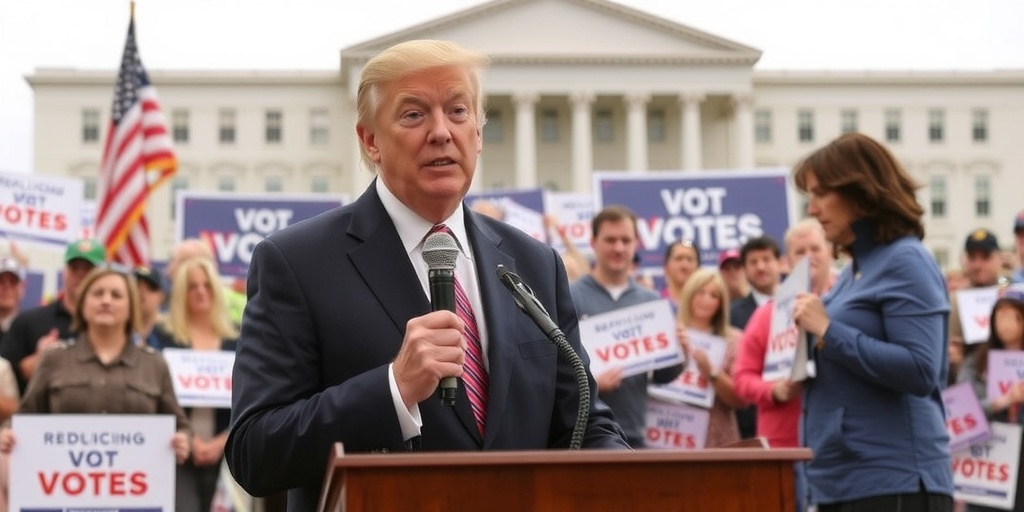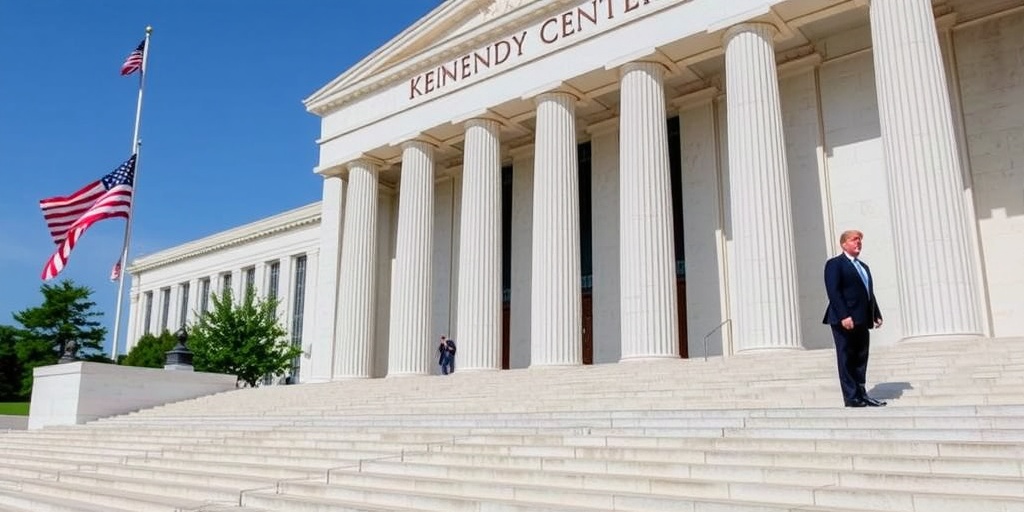Now Reading: Republicans Warned Against Meeting Voters Amid Rising Anger and Unease
-
01
Republicans Warned Against Meeting Voters Amid Rising Anger and Unease
Republicans Warned Against Meeting Voters Amid Rising Anger and Unease

Town Hall Meetings Reveal Growing Discontent Among Republican Constituents
In recent town hall meetings held in Wyoming and North Carolina, Republican lawmakers, including Representative Harriet M. Hageman and Representative Chuck Edwards, faced a wave of frustration from constituents regarding the policies of the Trump administration, particularly concerning cuts to federal programs and services.
During a civic center event in Afton, Wyoming, Hageman responded to concerns from a retired woman about potential cuts to Social Security, asserting firmly, “Nobody is touching Social Security.” This was just the beginning of a series of confrontations as she navigated difficult questions from her constituents. The following day in Evanston, another attendee, Scott Flint, a retired miner, confronted Hageman about the impact of the Trump administration’s cuts on essential services in his area, including the closure of a Mine Safety and Health Administration office that he relied on. Flint’s outcry highlighted the discontent many constituents felt amidst significant budget reductions propagated by the administration.
The backlash against cuts has come as Trump and influential business magnates like Elon Musk push for rapid shrinks of the federal government, leading to unease among many constituents who fear that necessary services may be compromised. Reports indicate that the atmosphere in Republican districts nationwide has become increasingly fraught with dissatisfaction, prompting party leaders to advise lawmakers to limit in-person engagements with constituents to avoid potential public relations disasters.
Despite assertions from party leaders that irate outbursts were the result of coordinated efforts by Democratic activists infiltrating Republican events, recent town halls revealed bipartisan concerns about the swift and often unexamined changes initiated by the Trump administration. Voters in solidly Republican districts expressed broad apprehensions about the ongoing budgetary cuts, the shuttering of federal agencies, and the undermining of vital public services, leading some to question the efficacy and direction of the administration’s policies.
An audience member in Asheville, North Carolina, challenged Representative Edwards directly, inquiring, “Why’s a nonelected person running our government?” This pointed remark, seemingly aimed at Musk, garnered applause from the crowd, suggesting that even conservative voters were feeling the strain of the administration’s controversial governance style.
As that town hall progressed, the mood quickly shifted from cordial to tense. Edwards, aware of the growing hostility, remarked on the difficulty of engaging in such forums, especially when addressing complaints about the administration’s budget decisions.
One attendee in Asheville emphatically noted his frustrations with long waiting times for eye exams at the local Veterans Affairs (V.A.) clinic, while other attendees criticized the administration’s methods of downsizing the federal workforce. Edwards defended the administration’s cuts, insisting that no reductions had occurred in staff at the V.A., only to be directly challenged by an audience member who claimed to have been fired from that very facility.
In stark contrast to Edwards’ town hall, Hageman’s meetings in Wyoming, although not devoid of criticism, featured a significant number of constituents vocalizing their continued support for Trump and his policies. Many applauded Hageman when she highlighted achievements such as stricter border security measures and administrative streamlining resulting in billions in savings. However, even some of her supporters voiced concerns, particularly regarding Musk’s influence on government efficiency initiatives that left many feeling uneasy about access to essential services.
Those gathered at these meetings reflected a cross-section of Republican voters, some ardently supportive of the administration, while others were critical and anxious about the practical implications of its policies on their day-to-day lives. A casual attendee, Nick White, articulated a sentiment shared by many, suggesting that the country needs to find a balanced middle ground amidst the pendulum swing of political power.
While Hageman and her supporters celebrated recent successes, the growing discontent at town halls serves as a critical reminder that not all Republican voters are aligned with the party’s current trajectory under Trump. Lawmakers face an uphill battle as they head into the next election cycle, with constituents increasingly vocal about their dissatisfaction and demand for accountability regarding policy impacts on their lives.
In conclusion, these town hall meetings underscore a growing discontent among Republican voters who are grappling with the repercussions of federal cutbacks and the influence of influential figures in governance. As the political landscape shifts and the 2024 elections approach, it is evident that lawmakers will need to address these concerns head-on to maintain their constituents’ trust.
Stay Informed With the Latest & Most Important News
Previous Post
Next Post
Previous Post
Next Post
-
 01New technology breakthrough has everyone talking right now
01New technology breakthrough has everyone talking right now -
 02Unbelievable life hack everyone needs to try today
02Unbelievable life hack everyone needs to try today -
 03Fascinating discovery found buried deep beneath the ocean
03Fascinating discovery found buried deep beneath the ocean -
 04Man invents genius device that solves everyday problems
04Man invents genius device that solves everyday problems -
 05Shocking discovery that changes what we know forever
05Shocking discovery that changes what we know forever -
 06Internet goes wild over celebrity’s unexpected fashion choice
06Internet goes wild over celebrity’s unexpected fashion choice -
 07Rare animal sighting stuns scientists and wildlife lovers
07Rare animal sighting stuns scientists and wildlife lovers





















